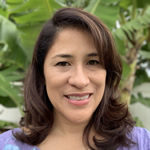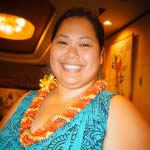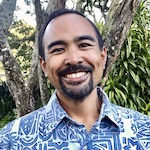A recording of this presentation is available.
Click the button to the right to access the session archive.
Author Archive: tcconline2020
Minecraft Communication Relay
A recording of this presentation is available.
Click the button to the right to access the session archive.
The Effectiveness of E-Learning in Preparing Potential Volunteers
The HBEP New Volunteer Orientation website presented information to acquaint potential volunteers with the responsibilities and situations they will likely encounter. A constructivist learning design allowed participants to make sense of the information and become drivers of their learning experience. To evaluate the impact of the website, an action research study was conducted using 10 participants. After consuming text and visual content, participants responded to actual volunteer scenarios via brief video recordings of themselves using Flipgrid. Participants completed pre- and post-tutorial surveys that measured prior knowledge of the volunteer position and content retention. Overall, survey results and feedback show that participants had a better understanding of volunteer expectations and felt confident about volunteering after completing the orientation. This study examined the challenges many volunteer organizations face during the recruitment and training process. Additionally, it supports the effectiveness of e-learning in improving the efficiency of preparing potential volunteers.
Website URL: https://mamizuka728.wixsite.com/hbepnewvolunteers
A recording of this presentation is available.
Click the button to the right to access the session archive.
Usability Study of Happy Chinese – Magic Five Lessons Website
My research project was to develop and evaluate the usage of a website I designed, which is called “Happy Chinese – Magic Five Lessons” (https://flysky661819.wixsite.com/happychinesemagic). I created this website and videos based on Microlearning style, to divide the lessons into very small chunks with little content and few sections, for easy learning. The visual designs were very important to gain users’ trust by expressing the Chinese traditional feeling with images on the website. The researcher conducted three rounds of usability tests with a total of nine participants. In this presentation, I will discuss the results of the data analysis from the usability tests and the revisions made to this website. In general, this website got very positive results and reactions from the participants because of the clear layout, easy navigation and access to videos, and culture-enriched design.
A recording of this presentation is available.
Click the button to the right to access the session archive.
Minecraft: Experience the Four Seasons
A recording of this presentation is available.
Click the button to the right to access the session archive.
Flip the Library: Introducing Digital Instruction Tutorials
This presentation focuses on the results of an action research study that explored the impact of new instructional materials delivered using a flipped-learning approach. The new materials consisted of online videos and forms students viewed to create a working artifact for use during in-person library research sessions. The effectiveness of their learned research abilities was evaluated through librarian observations. The goal of this study was to better prepare students for the in-person library instructional sessions.
Participants were evaluated by their classification of research topics issues and their effectiveness of use in the research process. Action research strategies were utilized in this process for its noninvasive approach in the classroom and the holistic approach it brought to the instructional design process when librarians engaged with students in conversation to gauge learning. This presentation explores the insights and lessons gained from this process.
A recording of this presentation is available.
Click the button to the right to access the session archive.
Farrington High School Faculty Resource Portal – Usability Study
The purpose of this usability study was to create and evaluate the ease-of-use and navigation of Farrington High Schools Faculty Portal (https://www.farringtonhighschool.org/faculty/). This website is a portal with access to many of the DOE resources and Information that faculty at Farrington High School need to complete their duties. The portal was designed with modern website design principals as well as the Gestalt’s Principles of Universal Design. The website’s usability was judged using Nielson’s severity rating scale. The usability study recruited 15 participants (3 rounds of 5 participants) who judged the navigation and usability of the website based on various scenarios. Three rounds of usability testing were conducted. Participants filled out and completed a survey during the study. Results collected indicated positive user experiences and many of the data was used to improve on website iterations. We will further explain the approach to the usability study and its outcomes. We will look at the methodology, design techniques and strategies, results of the student and discuss the lessons learned from the study.
A recording of this presentation is available.
Click the button to the right to access the session archive.
Happy Hour! 😁☀️🍎☕️🍻
How Creativity was Experienced in the Design Thinking Process? An Exploratory Study
A recording of this presentation is available.
Click the button to the right to access the session archive.
Exploring Emojis in Higher Education: A Meta-Synthesis
A recording of this presentation is available.
Click the button to the right to access the session archive.

 Born and raised in the San Francisco Bay Area by naturalized U.S. citizens, Melanie Chan-Vinoray was the first in her family to earn a Bachelor’s degree. After earning a B.A. in American Studies from the University of California, Santa Cruz, she served two years in the Americorps National Service Program, working to increase academic achievement in a public school in Oakland, CA. Committed to serving historically and systemically underserved communities through the field of education, Melanie completed a state-approved secondary teacher preparation program at San Francisco State University to continue her work as an educator in public schools. Her commitment as a classroom teacher brought Melanie to Maui, HI, a decade ago. She continues to serve as a middle school teacher in the Hawai’i public school system and strives to spark students’ interests and passions in the classroom. Melanie’s studies in the LTEC graduate program will directly benefit public school students and has also provided her time for immense personal development. She is a second-year graduate student in the College of Education’s online LTEC program at the University of Hawai’i at Manoa.
Born and raised in the San Francisco Bay Area by naturalized U.S. citizens, Melanie Chan-Vinoray was the first in her family to earn a Bachelor’s degree. After earning a B.A. in American Studies from the University of California, Santa Cruz, she served two years in the Americorps National Service Program, working to increase academic achievement in a public school in Oakland, CA. Committed to serving historically and systemically underserved communities through the field of education, Melanie completed a state-approved secondary teacher preparation program at San Francisco State University to continue her work as an educator in public schools. Her commitment as a classroom teacher brought Melanie to Maui, HI, a decade ago. She continues to serve as a middle school teacher in the Hawai’i public school system and strives to spark students’ interests and passions in the classroom. Melanie’s studies in the LTEC graduate program will directly benefit public school students and has also provided her time for immense personal development. She is a second-year graduate student in the College of Education’s online LTEC program at the University of Hawai’i at Manoa. Morgan Mamizuka is the Volunteer Coordinator for the Hawaii Sea Grant Hanauma Bay Education Program (HBEP) in Honolulu, Hawaii and a graduate student in the Learning Design and Technology program at UH Manoa (LTEC). After receiving her B.S. in Agricultural Business from UH Hilo she began an internship with the HBEP. Working alongside HBEP staff and volunteers to educate visitors on the marine life and stewardship of Hanauma Bay Nature Preserve, she developed a passion for marine conservation and serving others. Since then she has led the HBEP’s Volunteer Program for 12 years. Her role as a Volunteer Coordinator is to recruit, train, and manage more than 100 volunteer docents who engage with the 800,000 park patrons each year. Morgan is excited to utilize the knowledge and skills gained through the LTEC program to enhance and elevate programs, activities, and educational resources offered by the HBEP.
Morgan Mamizuka is the Volunteer Coordinator for the Hawaii Sea Grant Hanauma Bay Education Program (HBEP) in Honolulu, Hawaii and a graduate student in the Learning Design and Technology program at UH Manoa (LTEC). After receiving her B.S. in Agricultural Business from UH Hilo she began an internship with the HBEP. Working alongside HBEP staff and volunteers to educate visitors on the marine life and stewardship of Hanauma Bay Nature Preserve, she developed a passion for marine conservation and serving others. Since then she has led the HBEP’s Volunteer Program for 12 years. Her role as a Volunteer Coordinator is to recruit, train, and manage more than 100 volunteer docents who engage with the 800,000 park patrons each year. Morgan is excited to utilize the knowledge and skills gained through the LTEC program to enhance and elevate programs, activities, and educational resources offered by the HBEP. Hongwei Shimizu received BA in Visual Media and MFA in Film & Electronic Media both from AU (American University). She has big passion in teaching, so she also gained Oxford Seminars’ TESOL/TESL/TEFL (100-HOUR) Certificate and Certificate in Greenburg PH.D. Teaching Seminar. Hongwei Shimizu now is a second year LTEC Master student at UH. She hopes she can contribute more and more in the education field of her Visual Media techniques and Multi-languages (Japanese, Chinese, and English) skills.
Hongwei Shimizu received BA in Visual Media and MFA in Film & Electronic Media both from AU (American University). She has big passion in teaching, so she also gained Oxford Seminars’ TESOL/TESL/TEFL (100-HOUR) Certificate and Certificate in Greenburg PH.D. Teaching Seminar. Hongwei Shimizu now is a second year LTEC Master student at UH. She hopes she can contribute more and more in the education field of her Visual Media techniques and Multi-languages (Japanese, Chinese, and English) skills. Aloha Everyone! My name is Kawika Gonzales. I am a part of the LTEC online master’s cohort since Fall 2019. I am also a 6th-grade teacher on the island of Molokai and have been teaching for the past 19 years. Besides the core general education classes, I also teach robotics, computer-aided design, and computer science. More recently, I have incorporated more virtual and augmented reality into my classroom. I am the math and grade level chair for our school and a part of the leadership team. My wife and I have 3 young boys, one in 1st grade and the other 2 in preschool. I enjoy taking them fishing and hunting.
Aloha Everyone! My name is Kawika Gonzales. I am a part of the LTEC online master’s cohort since Fall 2019. I am also a 6th-grade teacher on the island of Molokai and have been teaching for the past 19 years. Besides the core general education classes, I also teach robotics, computer-aided design, and computer science. More recently, I have incorporated more virtual and augmented reality into my classroom. I am the math and grade level chair for our school and a part of the leadership team. My wife and I have 3 young boys, one in 1st grade and the other 2 in preschool. I enjoy taking them fishing and hunting. Aloha! My name is Kalei Carvalho. I am currently in my first year of the LTEC Master’s program and anticipate graduating in May 2021. I originally started this program with only the hope of advancing in my career in the future. However, I am beyond grateful that I took this opportunity because it has been very beneficial in my current line of work. I currently work as a Student Support for the Wai’ale’ale Program, which is one of the first-year experience programs at Kaua’i Community College. I have lived on Kaua’i my entire life and use any opportunity I have to help strengthen our community. The biggest motivations in my life, however, are my husband and my children.
Aloha! My name is Kalei Carvalho. I am currently in my first year of the LTEC Master’s program and anticipate graduating in May 2021. I originally started this program with only the hope of advancing in my career in the future. However, I am beyond grateful that I took this opportunity because it has been very beneficial in my current line of work. I currently work as a Student Support for the Wai’ale’ale Program, which is one of the first-year experience programs at Kaua’i Community College. I have lived on Kaua’i my entire life and use any opportunity I have to help strengthen our community. The biggest motivations in my life, however, are my husband and my children. Judy Kakazu received her BA in Zoology after switching her major no less than 7 times. As a result she knows very little about a lot of things. Judy then decided that she would take a break from academia and learn something fun. As a result, Judy has been a paramedic with the 911 system on Oahu for 30 years. Intermittently returning to the academia that she vowed never to return to, Judy has been fortunate to study subjects such as Human Physiology at the graduate level. After a recent work injury, Judy was given the opportunity to explore Learning Design and Technology at UH Manoa. As a first year student in the online Master’s program and under the mentorship of all within this excellent department, Judy is truly grateful and hopes to continue the privilege of learning, forever. Some of her interests include the gamification of learning, endocrinology and thinking outside of the box…
Judy Kakazu received her BA in Zoology after switching her major no less than 7 times. As a result she knows very little about a lot of things. Judy then decided that she would take a break from academia and learn something fun. As a result, Judy has been a paramedic with the 911 system on Oahu for 30 years. Intermittently returning to the academia that she vowed never to return to, Judy has been fortunate to study subjects such as Human Physiology at the graduate level. After a recent work injury, Judy was given the opportunity to explore Learning Design and Technology at UH Manoa. As a first year student in the online Master’s program and under the mentorship of all within this excellent department, Judy is truly grateful and hopes to continue the privilege of learning, forever. Some of her interests include the gamification of learning, endocrinology and thinking outside of the box… Sarah Nakashima regularly looks for strange articles revolving around animals and cults. As a Humanities Librarian at Hamilton Library at the University of Hawaiʻi at Mānoa (UHM), she uses the found information to engage undergraduate students in the research process. Her excitement for student engagement and her desire to broaden the library’s reach motivated her to pursue online learning. Currently, Sarah is finishing as a Master’s candidate in the UHM College of Education, Learning Design and Technology department. Her research focused on incorporating online learning strategies into current library instructional roles.
Sarah Nakashima regularly looks for strange articles revolving around animals and cults. As a Humanities Librarian at Hamilton Library at the University of Hawaiʻi at Mānoa (UHM), she uses the found information to engage undergraduate students in the research process. Her excitement for student engagement and her desire to broaden the library’s reach motivated her to pursue online learning. Currently, Sarah is finishing as a Master’s candidate in the UHM College of Education, Learning Design and Technology department. Her research focused on incorporating online learning strategies into current library instructional roles. Joshua Dimaya grew up in Honolulu, Hawaii. Upon receiving his degree in Management Information Systems and Secondary Education at the University of Hawaii at Manoa, he has worked in the IT fields for 4 years before deciding into moving into the DOE. Joshua is a computer science teacher and tech coordinator at his alma mater. He credits his experience in the private field in helping to modernize the tools and technology structure available to students, educators and faculty at the school. He is always constantly looking into improving and evolving the technology infrastructure of the school. He is a second-year LTEC master’s student at the University of Hawaiʻi at Mānoa.
Joshua Dimaya grew up in Honolulu, Hawaii. Upon receiving his degree in Management Information Systems and Secondary Education at the University of Hawaii at Manoa, he has worked in the IT fields for 4 years before deciding into moving into the DOE. Joshua is a computer science teacher and tech coordinator at his alma mater. He credits his experience in the private field in helping to modernize the tools and technology structure available to students, educators and faculty at the school. He is always constantly looking into improving and evolving the technology infrastructure of the school. He is a second-year LTEC master’s student at the University of Hawaiʻi at Mānoa.